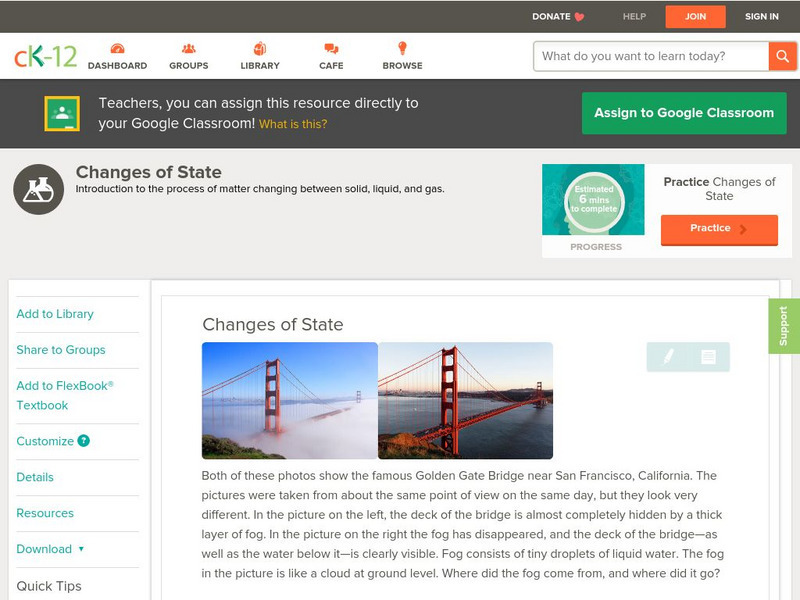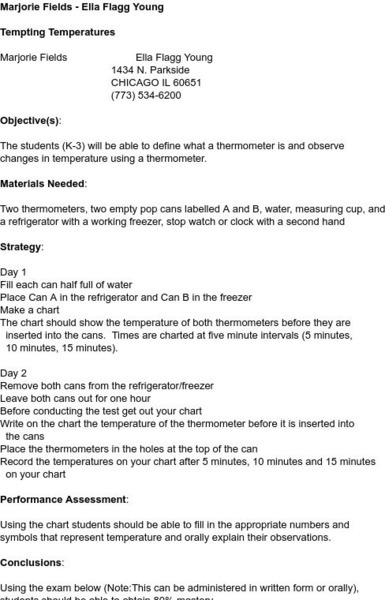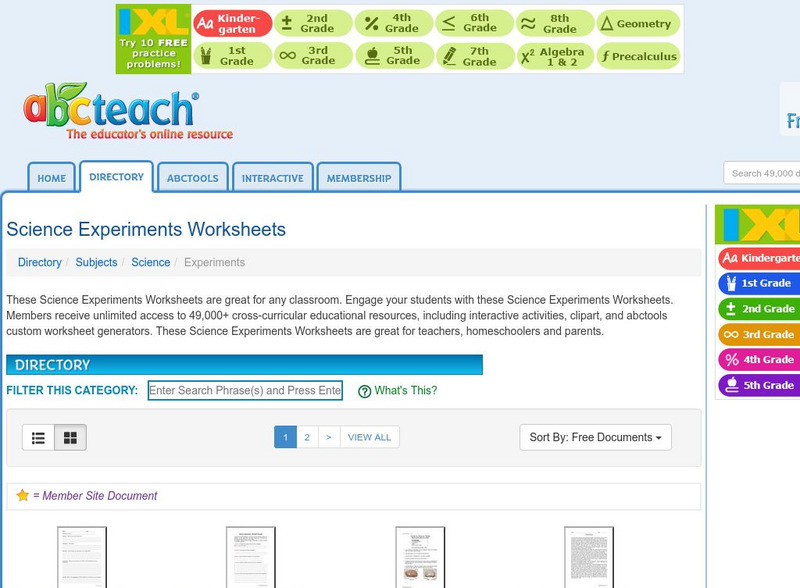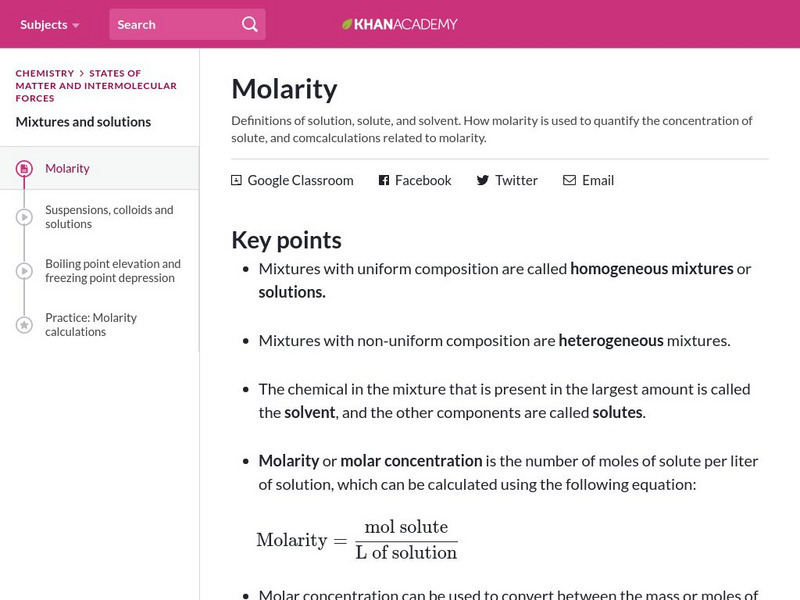Ducksters
Ducksters: Kids Science: Melting and Boiling
Kid's learn about the science of melting and boiling. How matter changes state from solids to liquids to gases.
CK-12 Foundation
Ck 12: Physical Science: Changes of State
[Free Registration/Login may be required to access all resource tools.] Definition of a change of state and the physical processes that cause it.
CK-12 Foundation
Ck 12: Earth Science: States of Water Study Guide
[Free Registration/Login may be required to access all resource tools.] This study guide summarizes key points about the three states of water. Includes a few questions to check for understanding.
Science and Mathematics Initiative for Learning Enhancement (SMILE)
Smile: Somethin' Sweet
This site provides a lesson plan using candy making to demonstrate physical and chemical changes in matter. Includes directions to make caramel and rock candy.
NC State University
The Engineering Place: Silly Stuff
An investigation into change of state where learners make silly putty.
NC State University
The Engineering Place: Ice Cream in a Bag
An investigation into change of state where students prepare small bags of ingredients and shake them within a bag of ice and salt to see if they can make ice-cream. As they progress, they apply the scientific method.
Other
Coalition for Plasma Science: A Teacher's Guide to Plasma Science Resources
These resources have been collated to National Science Standards, and include lesson planning ideas.
University of Chicago
Center for Astrophysical Research in Antarctica: Don't Be Too Flaky
After reading some facts about the properties of water, students conduct experiments to measure the relative densities of water, ice and snow and submit the results to the website.
Science and Mathematics Initiative for Learning Enhancement (SMILE)
Smile: Tempting Temperatures
In this lesson plan students learn how to use a thermometer and compare changes in temperature using water in the fridge and water in the freezer. Helps students create charts to analyze data.
Science Education Resource Center at Carleton College
Serc: Mn Step: Solids and Liquids Stations
A description of a instructional activity where students navigate through twelve stations on solids and liquids and record their observations in a booklet. The station topics are listed, but the recording booklet materials were purchased...
abcteach
Abcteach: Experiments
[Free Registration/Login Required] Elementary students learning to do experiments will be able to use these ready-made worksheets for gathering data on evaporation, melting ice and others.
SMART Technologies
Smart: Temperature and Thermal Energy
Teach students the relationship between temperature and thermal energy. It also addresses the three temperature scales: Fahrenheit, Celsius, and Kelvin.
Cosmo Learning
Cosmo Learning: Ap Chemistry With Chemguy
Need to review a topic for AP Chemistry? This site features a collection of video lectures covering the curriculum of AP Chemistry. The lectures are broken up by topics and vary in length. Lectures cover thermodynamics, bonding,...
Khan Academy
Khan Academy: Molarity
Learn the definitions of a solution, solute, and solvent. Understand how molarity is used to quantify the concentration of solute, and comcalculations related to molarity.
Other popular searches
- Three States of Matter
- Changing States of Matter
- 3 States of Matter
- States of Matter Gases
- Science States of Matter
- Chemistry States of Matter
- States of Matter Lab
- 6 States of Matter
- States of Matter Plasma
- Identifying States of Matter
- Changes in States of Matter
- Matter Changing States









